According to PEP-484, we should be able to type hinting a generator function as follows:
from typing import Generator
def generate() -> Generator[int, None, None]:
for i in range(10):
yield i
for i in generate():
print(i)
However, the list comprehension gives the following error in PyCharm.
Expected 'collections.Iterable', got 'Generator[int, None, None]' instead less... (⌘F1)
Any idea why PyCharm is considering this as error?
A few clarification after reading some answers. I am using PyCharm Community Edition 2016.3.2 (the latest version) and have imported the typing.Generator (updated in the code). The above code runs just fine, but PyCharm considers this an error:
So, I'm wondering if this is actually an error or an unsupported feature in PyCharm.
